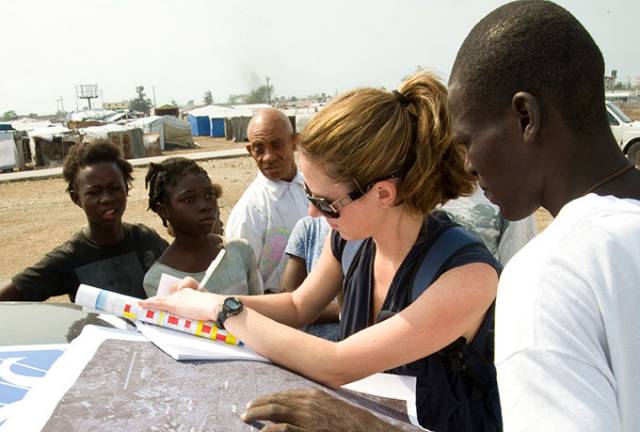You are here
Ready for the Next Pandemic? We better be.
H7N9 bird flu, yellow fever, Zika, Ebola, Middle East Respiratory Syndrome... the list of potential health threats goes on and on. More than ever, we are finding that a health threat anywhere is a threat everywhere. Last week, I was pleased to see this idea get increased attention through a cover story in TIME Magazine.
“Some recent outbreaks registered in the U.S. as no more than a blip in the news, while others, like Ebola, triggered an intense but temporary panic,” the TIME article states. “And while a mutant bug that moves from chickens in China to humans in cities around the world may seem like something out of a Hollywood script, the danger the world faces from H7N9—and countless other pathogens with the potential to cause enormous harm—isn’t science fiction.”
Today, we live in an interconnected world, particularly when it comes to disease and public health threats. Disease knows no borders. It knows no boundaries.
Our colleagues at the Centers for Disease Control and Prevention (CDC) and other national and international organizations focused on health have been sounding the alarm for some time. And many, including CDC, have been diligently working to tackle the issue by carrying forward the Global Health Security Agenda. In short, GHSA provides a platform for organizations from across the globe to work together to help prevent and reduce the likelihood of outbreaks, detect threats early and respond rapidly and effectively when outbreaks do occur.
Diseases with the potential to go global not only pose threats to health, they also represent very serious risks to economic well-being. It doesn’t take much to imagine a disease outbreak that could cause incredible financial harm to businesses, their employees and the U.S and global economies. To protect our health and economic security, I believe it is wise for America and the rest of the world to invest in work that supports global disease detection and response. This investment protects America, creates a healthier world and ensures greater stability around the globe.
In the same issue of TIME, a Bill Gates authored op-ed titled “How to Keep America Safe” highlights the importance of using foreign aid to help strengthen global disease detection and response. In this op-ed, Gates says “… aid delivers phenomenal benefits, and for a bargain. It represents less than 1% of the federal budget, not even a penny out of every dollar. It is some of the best return on investment anywhere in government. This money is well spent, it has an enormous impact, and it ought to be maintained.”
In my view, it has never been more important for our nation to invest in a stronger, more coordinated and better resourced network for global health security. America has an essential role to play in this work, along with other nations around the world.
Beyond federal support, philanthropic and private sector support is also essential to prepare for and respond to outbreaks. From H1N1 to Ebola, we at the CDC Foundation have been called upon to aid CDC’s response to outbreaks, and I know that we will be called upon again to help in emergencies. In these earlier responses, so many of you have stepped forward to help with support that has saved lives and spared additional suffering.
If you want to help us support CDC so that CDC can help protect us all, please consider a donation to the CDC Foundation’s Emergency Response Fund. What many people don’t realize is that in crisis situations CDC may not initially have access to all of the government funding they need or may be limited in how they can spend funds. Through our fund, we seek to raise support to enable CDC staff to respond quickly to changing circumstances and needs.
Your donation now helps us be better prepared to help CDC save and protect lives in the next outbreak.

